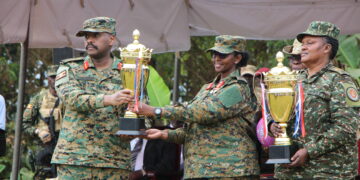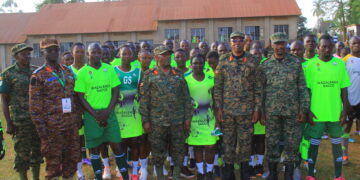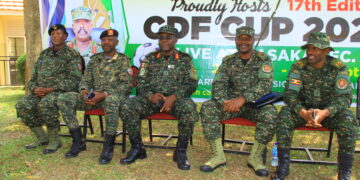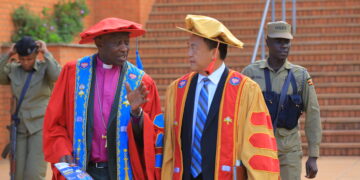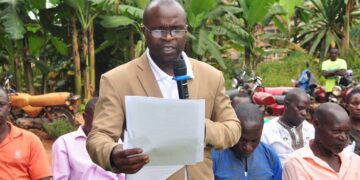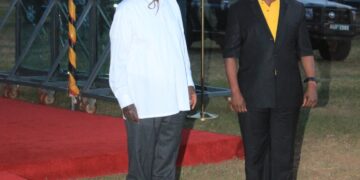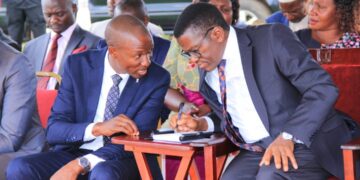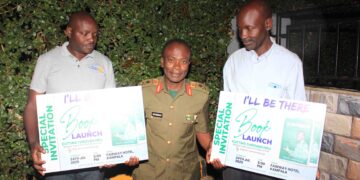Chief Justice Alfonse Chigamoy Owiny-Dollo has dismissed suggestions that judges require courage to deliver rulings in controversial cases, insisting that their duty is to remain faithful to the Constitution and the judicial oath.
Speaking during the 8th Benedicto Kiwanuka Memorial Lecture in Kampala, Owiny-Dollo said he “did not require even an iota of courage” to rule against the trial of civilians in military courts.
In January, the Supreme Court declared that courts martial lack jurisdiction to try civilians, a landmark decision delivered in a constitutional petition filed by former legislator Michael Kabaziruka.
The ruling was widely celebrated, with some observers describing it as a bold move by the judiciary against entrenched powers.
During the memorial lecture, former Uganda Law Society President, Francis Gimara, SC, argued that such decisions demonstrated judicial courage and reflected the legacy of Benedicto Kiwanuka, Uganda’s first Prime Minister and Chief Justice, who was murdered by Idi Amin’s military in 1972.
“To honor Benedicto Kiwanuka’s legacy, we must defend justice,” Gimara said. “In our current context, this means we should be very deliberate in fostering a culture of civic courage.”
But Owiny-Dollo disagreed, saying Chief Justice Kiwanuka, like all judges, was guided by conscience and the law rather than bravery.
“I doubt that Benedicto Kiwanuka was courageous. If it requires a judge to be courageous to render justice, that is very dangerous,” Owiny-Dollo said. “The courage he would have needed was to come up with a ruling that was contrary to the law.”
The Chief Justice emphasized that in the Kabaziruka case, his decision flowed naturally from the Constitution. “I never required even an iota of courage to interpret the Constitution versus the UPDF Act as amended and to come out with the decision which I made. No courage at all,” he said.
The Supreme Court ordered the military to halt all trials of civilians and transfer such cases to civilian courts. However, Parliament later passed the Uganda Peoples’ Defence Forces (Amendment) Bill, 2025, reinstating military jurisdiction over civilians in cases linked to the army. President Museveni has since signed the law.
Human rights groups argue that the amendment undermines constitutional rights and contradicts the Supreme Court’s January 30 ruling. The National Unity Platform (NUP) has already petitioned the Constitutional Court, challenging the new law as unconstitutional.
The debate over military trials of civilians remains unresolved, with dozens of suspects who were before the court martial still in detention.




